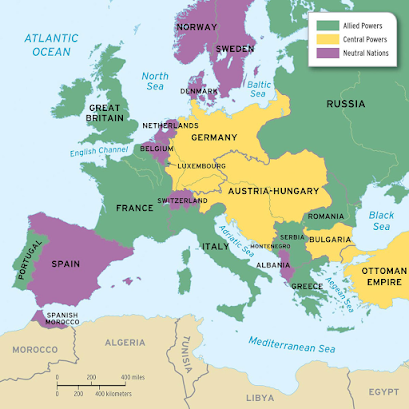World War, also known as the Great War, was a global conflict that took place from 1914 to 1918. It involved the major world powers of the time, including the Allies (primarily composed of France, Russia, and the United Kingdom) and the Central Powers (primarily composed of Germany, Austria-Hungary, and the Ottoman Empire). The war resulted in millions of deaths, significant changes in global power structures, and had a profound impact on the course of history. In this article, we will explore the causes, events, and consequences of World War I.
Causes of World War
The causes of World War I are complex and multifaceted, but historians generally agree that there were several key factors that led to the outbreak of war. These include:
Nationalism: The early 20th century was characterized by intense nationalism and competition between European powers. Countries were eager to assert their dominance and protect their interests, leading to a series of diplomatic crises.
Imperialism: European powers were engaged in a global scramble for colonies and resources, leading to tensions and rivalries between countries.
Militarism: The major powers of Europe had built up their armies and navies in the years leading up to the war, creating a sense of competition and an arms race.
Alliances: The major powers of Europe had formed alliances with each other, committing to mutual defense in the event of an attack.
The immediate trigger for the outbreak of war was the assassination of Archduke Franz Ferdinand of Austria-Hungary by a Serbian nationalist in June 1914. This event sparked a diplomatic crisis that ultimately led to the declaration of war between Austria-Hungary and Serbia. As a result of the complex network of alliances and competing interests between European powers, the conflict quickly spread and escalated into a global conflict.
Events of World War
World War I was characterized by a series of major battles and offensives, as well as the use of new and deadly technologies such as tanks, chemical weapons, and aircraft. Some of the most significant events of the war include:
The Battle of the Marne: In September 1914, the German army launched a major offensive towards Paris. The Allied forces, led by French General Joseph Joffre, were able to halt the German advance in the Battle of the Marne, marking a turning point in the war.
The Battle of the Somme: In July 1916, the British launched a major offensive along the Somme River in France. The battle lasted for several months and resulted in significant casualties on both sides, with over 1 million men killed or wounded.
The Battle of Verdun: In February 1916, the German army launched an offensive against the French fortress city of Verdun. The battle lasted for several months and resulted in over 700,000 casualties.
The Russian Revolution: In 1917, the Russian Revolution overthrew the Tsarist government and established a Communist government under the leadership of Vladimir Lenin. This had a significant impact on the course of the war, as Russia withdrew from the conflict and signed a separate peace treaty with Germany.
The Entry of the United States: In April 1917, the United States declared war on Germany and entered the conflict on the side of the Allies. This had a significant impact on the outcome of the war, as American troops and resources played a crucial role in the final offensive against Germany.





No comments:
Post a Comment